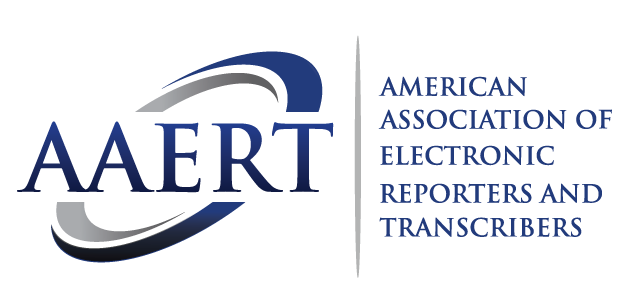
Online Digital Court Reporter and Legal Transcriptionist Training
This boot camp is a self-paced course that can be completed 100% online
Become a Digital Court Reporter and Legal Transcriber

This Digital Court Reporting with Legal Transcriptionist training course will provide you with an introduction to the court system, legal procedures, terminology, ethics, professionalism, and confidentiality. During the digital reporting training portion, you will learn how to cover all types of legal proceedings, including how to work with digital reporting software and equipment. There is no hands-on training with digital reporting equipment. During the course's legal transcription training portion, you will learn to format, transcribe, edit, and proofread legal transcripts for correct grammar, punctuation, and word usage. In addition to many exercises, quizzes, and self-graded assignments, you will receive personalized feedback on instructor-graded transcription assignments.
Upon course completion, you will be fully prepared to pass the Certified Electronic Reporter (CER) and Certified Electronic Transcriber (CET) exams offered by the American Association of Electronic Reporters and Transcribers (AAERT). The AAERT certification is the leading credential for courts and businesses throughout the U.S. and is required by various court systems and agencies for employment purposes.
Learn More
Job Outlook for Court Reporters and Legal Transcribers
As litigation continues to rise nationwide and the technology used to capture testimony evolves, there is a tremendous need for court reporters and legal transcriptionists. These professionals can work in the freelance market for court reporting agencies or transcription companies, or as full-time government employees at a courthouse. There are also some opportunities to work remotely in this field.
The U.S. Bureau of Labor Statistics reports that, on average, about 1,600 openings for court reporters and simultaneous captioners are projected each year by 2033. Most of those openings are expected to result from the need to replace workers who transfer to different occupations or exit the labor force, such as retiring.
According to ZipRecruiter, the average annual salary for a digital court reporter in the U.S. is $67,770 ($33 per hour). Many court reporters work as independent contractors, so their pay depends on the amount of work they can secure. Some digital reporters also work as legal transcriptionists. The average annual salary for a legal transcriptionist in the U.S. is $46,930 ($23 per hour).
Digital Court Reporter and Legal Transcriber FAQs
Course Objectives
- Digital court reporting procedure for all types of proceedings, such as depositions, administrative hearings, court hearings, trials, and more
- Digital reporting hardware and software, including practice using digital recording software
- How to create an accurate legal transcript
- Master transcript formatting, focusing on federal court systems
- Discover parts of speech, proper legal punctuation, and spelling
- Increase knowledge of legal, medical, and industry terminology
- Understand professionalism, ethics, and confidentiality
- Gain fundamentals of the United States legal system
- Successfully prepare to sit for and pass the AAERT's (American Association of Electronic Reporters and Transcribers) Certified Electronic Reporter (CER) and Certified Electronic Transcriber (CET) exams
Enroll Now
Prerequisites and Certification Requirements
To complete this course, you will need the following:
- High school diploma or equivalent
- Basic computer skills, for example:
- Create folders (aka directories) and save files
- Locate files saved on a computer and upload them to a webpage
- Use a web browser and search the Internet
- Familiarity with a word processing program
- Ability to use videoconferencing software, like Zoom
- Eligible for notary public commissions in your state
Note: If you are taking this AAERT certification course to prepare for the exam, please research the locations where you are interested in working to determine whether they use digital reporting methods and recognize the AAERT certification.
Instructors
Merritt Gilbert
Merritt Gilbert is a legal professional with over 15 years of industry experience. She is a Certified Electronic Reporter (CER), Certified Deposition Reporter (CDR), and holds a Certificate of Voice Writing. She graduated with a Bachelor of Science from Florida State University.
Natalie Hartsfield
Natalie Hartsfield is a court reporter with more than 20 years of experience in the legal field. She has taught court reporting since 2007. Natalie holds an Occupational Associate Degree in Court Reporting from Stenotype Institute and is a Certified Electronic Reporter (CER) and Certified Electronic Transcriber (CET) through AAERT.
Registration and Enrollment
This boot camp is a self-paced course that can be completed 100% online—no prerequisites required. Open enrollment means you can register and start the boot camp whenever you are ready. Access to your boot camp can take 24-48 business hours.
Enroll Now